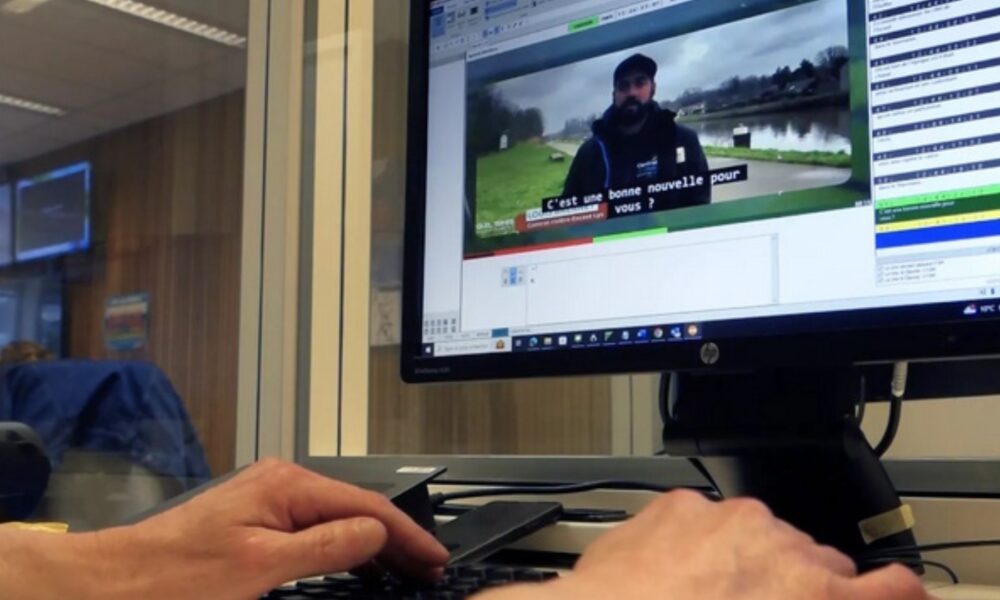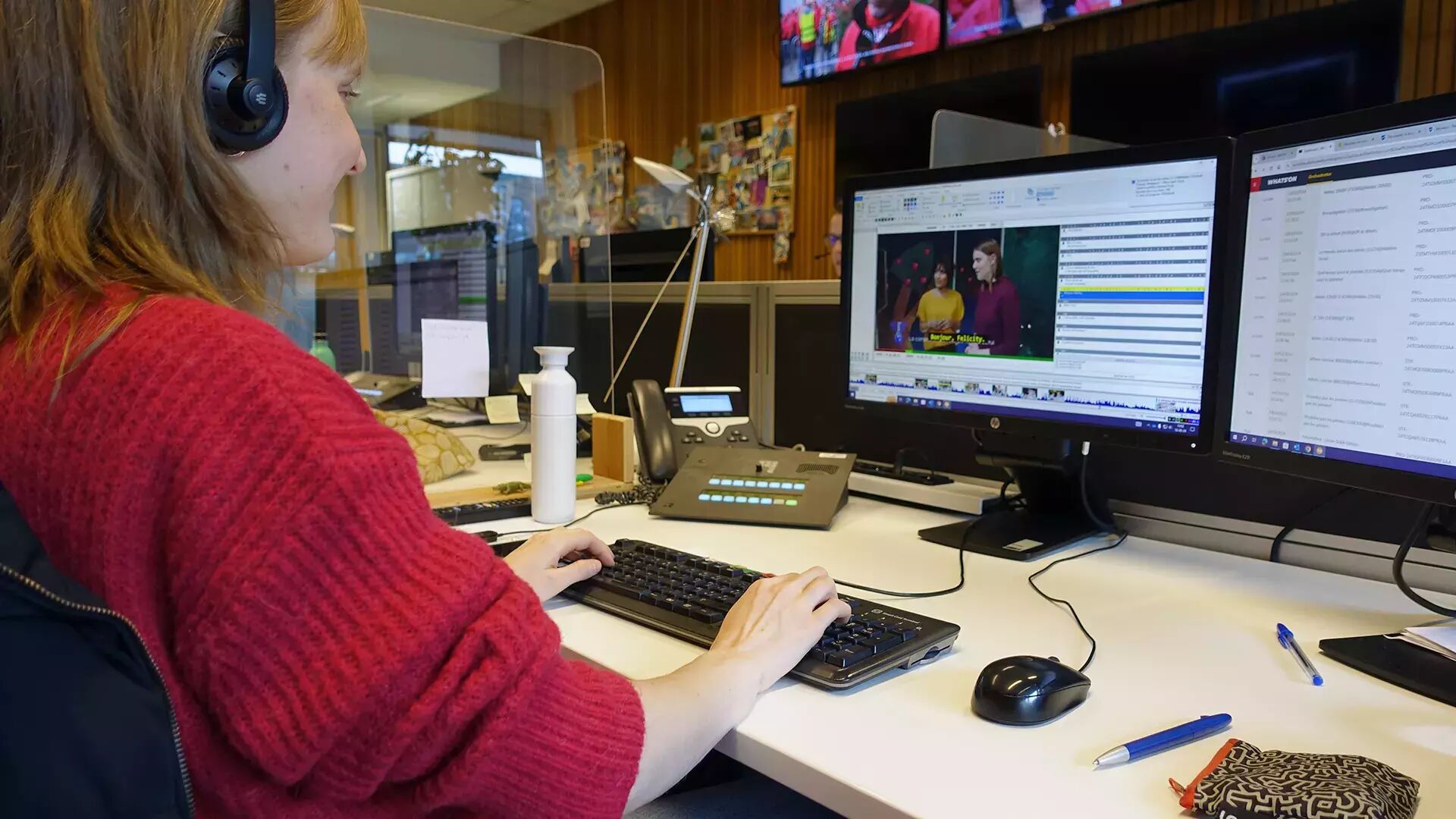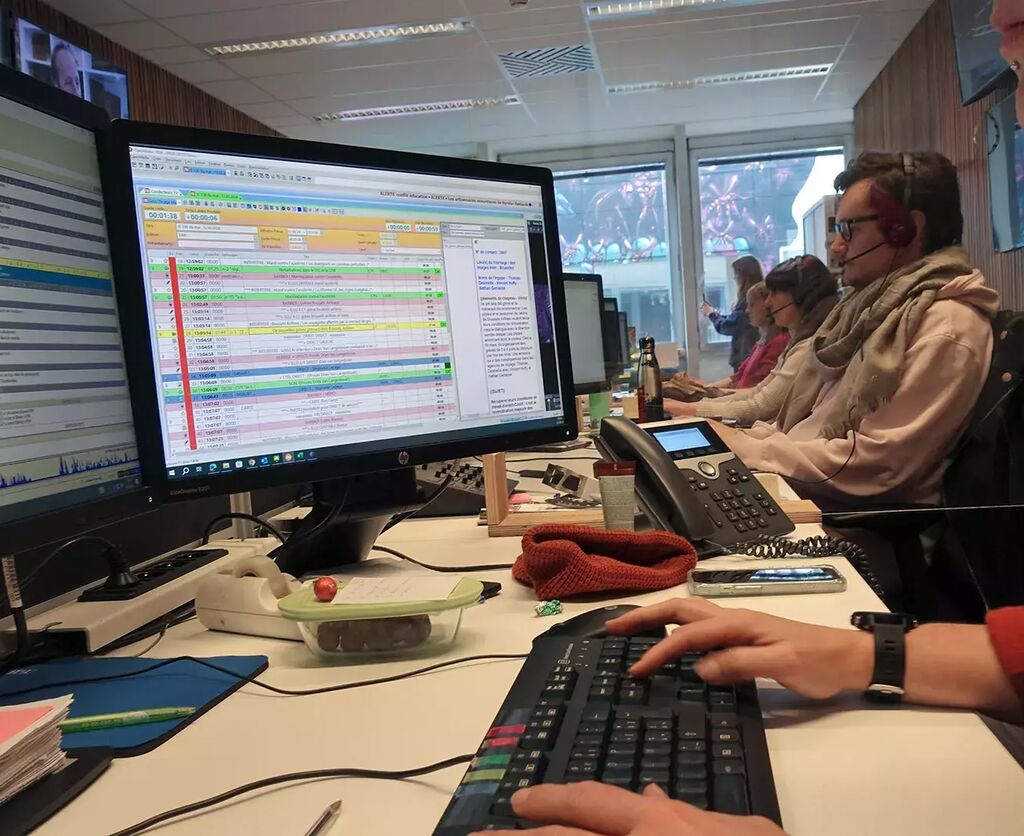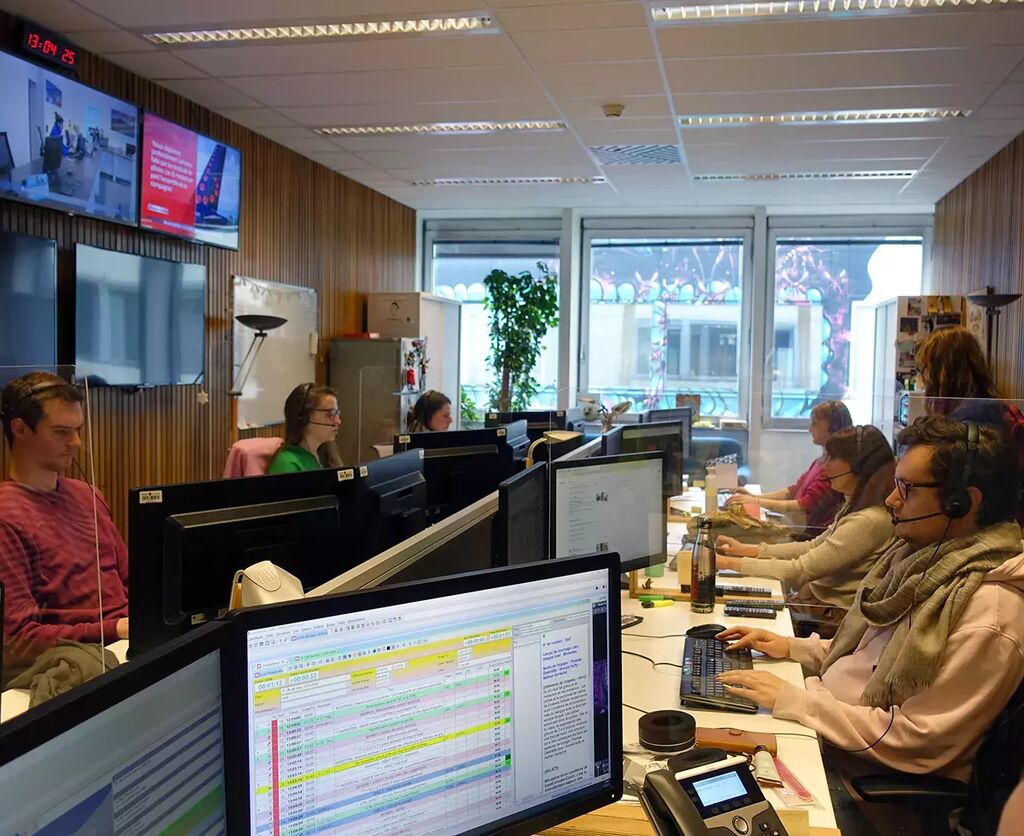Discover the ACCESS Unit at Dreamwall

Our work
At ACCESS – Dreamwall, accessibility is at the core of our mission. We specialise in creating
subtitles for deaf and hard-of-hearing (SDH) audiences, providing different types of services
tailored to specific broadcast needs:
- Pre-recorded subtitling: for videos received in advance;
- Semi-live subtitling: for videos received less than 24 hours in advance;
- Live subtitling: produced in real time and broadcast with a slight delay;
- Live+ subtitling: combining pre-prepared scripts and real-time broadcast for higher quality.
We also offer transcription services, both live and offline, as well as audio description and
professional training in speech recognition techniques.
Who we are and where we come from
The ACCESS Unit was founded in 2006 within RTBF, Belgium’s French-speaking public broadcaster. Initially a small subtitling structure, it took a major leap in 2016 when its subtitlers started using speech recognition to produce live subtitles. This shift improved speed, accuracy, and made it possible to subtitle live TV programs. Over time, ACCESS developed its skills, notably by creating an internal quality charter aligned with the accessibility standards set by the Conseil supérieur de l’Audiovisuel (CSA). In October 2020, the Unit became part of Dreamwall, a production company equally committed to high standards. Since then, it has expanded significantly in both team size and technological capacity: from 13 subtitlers in 2021, we have grown to 29 in 2025 — and it’s just the beginning!
How live subtitling works
Live subtitling makes audiovisual content and cultural events accessible in real-time to viewers with hearing impairments. Several subtitlers rotate every 15 to 20 minutes. Using a speech recognition software called Dragon, they listen to the content, rephrase it in a clear and concise manner, correct any transcription errors, and send it to be displayed on the screen — all without losing the thread of the story. They also add sound and music cues, using a specific colour-coding system.
Subtitles appear two lines at a time and are replaced every few seconds, so the viewer can follow along with the content. In contrast, transcription appears as a continuous, full-screen text.
ACCESS in numbers
- 29 subtitlers, including 6 coordinators and 4 specialised trainers;
- 3,500 hours of subtitled content produced annually (excluding reruns), including 2,130 hours
of live subtitling, - 2,500 hours of audio description per year;
- Up to 7 teams working daily, each with a specific task;
- Operating hours from 6:00 a.m. to 1:00 a.m.
Our clients and partnerships
Initially, ACCESS subtitles were produced exclusively for RTBF’s three television channels. As demand grew, we began working with local Belgian broadcasters such as Télésambre, Télé MB, Vedia and BX1. And in April 2025, we started providing daily subtitling for RTL Belgium, a major private broadcaster. Moreover, in October 2024, we established a partnership with Info-Sourds de Bruxelles, an association supporting the deaf community, to offer live transcription at various events. Highlights include a symposium on employment for people with disabilities at the Brussels Parliament, and the opening show of the Heritage Days in Louvain-la-Neuve. Further information (in French) here.
Our impact on accessibility in French-speaking Belgium
In Belgium, national regulations require broadcasters to subtitle a minimum percentage of their content. Thanks to our dedicated work, our main client RTBF has consistently exceeded these targets. A report from the media regulator (CSA) for French-speaking Belgium states:
“In 2023, La Une, Tipik and AB3 met or even exceeded their targets with subtitling rates of 98.3%, 97.9%, and 75%, respectively. RTBF stands out for providing live subtitles on a portion of its content (16% on La Une, 12% on Tipik), made possible by its provider Dreamwall. La Trois surpassed its target, with 45% of accessible content.”
Source (in French): https://www.csa.be
While our subtitles are primarily intended for those with hearing impairments, they are also helpful in many everyday situations — for newcomers and non-native speakers learning French as part of their integration process, or in environments where sound cannot be turned on, for example when children are sleeping or in public spaces.
In conclusion, with its efficient and highly trained team, Dreamwall’s ACCESS Unit plays a vital role in making information and entertainment inclusive and accessible to everyone, regardless of their hearing ability.
gallery
En quelques chiffres, la Cellule ACCESS, c’est :
- 29 sous-titreurs, dont 6 coordinatrices et 4 formateurs spécialisés ;
- 3500 heures de sous-titrage SME par an en moyenne (hors rediffusions), dont 2130 heures de sous-titrage en direct ;
- 2500 heures d’audiodescription fournies ;
- Jusqu’à 7 équipes par jour ayant chacune sa tâche ;
- Une amplitude horaire comprise entre 6h et 1h du matin.
Nos clients et partenariats
Dans un premier temps, les sous-titres de la Cellule ACCESS étaient exclusivement destinés aux trois chaînes de la RTBF, mais le développement du service a attiré de nouveaux clients. Parmi eux, plusieurs médias de proximité comme Télésambre, Télé MB, Vedia ou encore BX1. Et, depuis ce 1er avril 2025, nous collaborons avec RTL Belgium, pour qui nous sous-titrons plusieurs programmes au quotidien.
Enfin, le 1er octobre 2024, nous avons conclu un partenariat avec l’association Info-Sourds de Bruxelles, pour qui nous effectuons des missions ponctuelles de transcription. Dans le cadre de ce partenariat, nos équipes ont transcrit plusieurs événements en direct tels qu’un colloque consacré à l’emploi des personnes en situation de handicap au Parlement bruxellois, ou encore le spectacle inaugural des Journées du Patrimoine à Louvain-la-Neuve.

You must accept functional cookies to play this video. Change settings



